As the world pays more and more attention to sustainable energy, the cost of using traditional fuel energy also needs to be paid attention to. As a power supply equipment widely used in industrial and commercial fields, the analysis of exhaust cost of diesel generators has become an important research topic. Exhaust cost not only includes the impact on the environment, but also involves economic factors, equipment maintenance costs and policies and regulations. This article will systematically explore the composition, influencing factors and comprehensive impact of diesel generator exhaust cost on operation.
1. Diesel generator exhaust cost composition
Diesel generators will produce a large amount of exhaust gas during operation, which contains a series of harmful substances such as carbon dioxide (CO2), nitrogen oxides (NOx), sulfur oxides (SOx) and particulate matter. These pollutants not only threaten air quality, but also have a profound impact on human health. Therefore, the exhaust treatment and related costs of diesel generators can be roughly divided into the following categories:
Emission facility cost: In order to reduce the emissions of diesel generators, many facilities need to install advanced purification equipment, such as selective catalytic reduction (SCR) system, diesel particulate filter (DPF), etc. These equipment are not only expensive, but also need regular maintenance and replacement, which increases the overall investment.
Operating costs: During operation, the fuel consumption of the generator will directly affect the exhaust cost. Generally speaking, the fluctuation of diesel prices will have a significant impact on the economic efficiency of the generator. Therefore, the operating cost of the diesel generator is also affected by fuel efficiency. In addition, factors such as the load condition, operating time and maintenance degree of the generator will also affect the emission, thereby increasing the exhaust cost.
Regulatory compliance costs: Different countries and regions have different regulatory requirements for industrial emissions, and power generation companies need to invest funds to ensure compliance with these standards. The testing costs, management costs and implementation costs of improvement measures in the compliance process all constitute an important part of the exhaust cost.
2.Factors affecting the diesel generators exhaust cost
The diesel generators exhaust cost is affected by multiple factors, which can be summarized as technical factors, market factors and policy factors:
Technical factors: The performance, technical improvements and upgrades of diesel generators directly affect exhaust emissions. For example, new diesel generators use more efficient combustion technology and more advanced exhaust aftertreatment systems, which can significantly reduce the emission of harmful substances, thereby reducing exhaust costs. In addition, regular equipment maintenance and correct operation methods can also effectively extend the service life of the generator and reduce emissions.
Market factors: Fluctuations in the diesel market will affect the cost of power generation, especially in the case of unstable global economic conditions, short-term fluctuations in oil prices may be quickly transmitted to exhaust costs. At the same time, consumers’ preference for environmentally friendly products has also driven industry transformation, further stimulating demand for low-emission generators.
Policy factors: As governments around the world pay more attention to environmental protection, relevant policies, support measures and incentive mechanisms have gradually increased. The implementation of these policies will not only change the use pattern of diesel generators, but may also lead to additional investment in emission management by enterprises to meet regulatory requirements, indirectly increasing exhaust costs.
3. The diesel generator exhaust costs on operations impact
The diesel generators exhaust costs have a profound impact on their operations.
First, from a direct economic perspective, higher exhaust costs will reduce the profitability of power generation companies, especially in the context of increasingly fierce market competition, companies need to maintain market competitiveness by optimizing processes, improving fuel utilization and reducing emissions.
Secondly, increasingly stringent environmental regulations also force companies to upgrade their technology and increase investment to ensure compliance, and then exhaust costs will rise further.
In addition, as society pays more attention to environmental protection, companies’ sense of social responsibility is also increasing. Investing in low-emission technology is not only a legal requirement, but also an improvement in the company’s self-brand image.
Conclusion
The diesel generators exhaust cost is a comprehensive economic and environmental issue, and its cost structure is affected by multiple factors including technology, market and policy. In the context of the global transition to a low-carbon economy, companies need to carefully analyze and manage the exhaust costs of diesel generators to achieve a balance between economic benefits and environmental protection. In the future, with the advancement of technology and the guidance of policies, the exhaust problem of diesel generators will be better solved, driving the entire industry towards sustainable development.






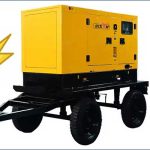
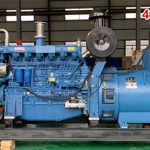
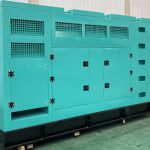
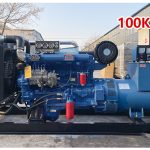
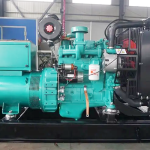
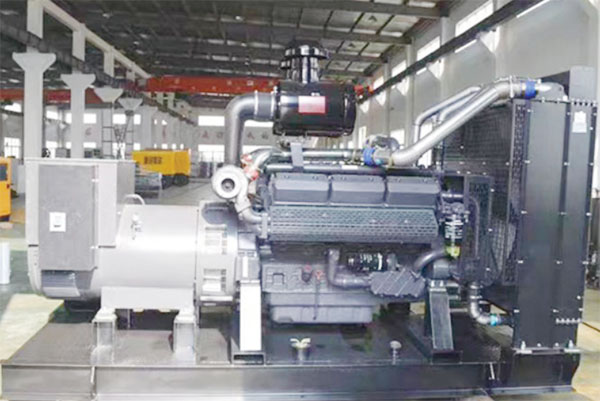
 Shqip
Shqip العربية
العربية Հայերեն
Հայերեն Български
Български Dansk
Dansk Nederlands
Nederlands English
English Français
Français Deutsch
Deutsch Italiano
Italiano 한국어
한국어 Македонски јазик
Македонски јазик മലയാളം
മലയാളം नेपाली
नेपाली Português
Português Русский
Русский Español
Español Svenska
Svenska ไทย
ไทย Türkçe
Türkçe Українська
Українська